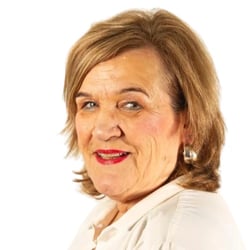Making A Will
- Wills, Probate, Tax & Trusts
- Making A Will
- Will Storage
- How To Find A Will
- Probate & Estates
- Powers of Attorney
- Care Home Funding
- Court of Protection
- Contested Wills
- Inheritance Tax Planning
- Trust Creation and Administration
- Advance Medical Decisions
- Equity Release
- Personal Taxation
- Probate Solicitor Costs
What Happens If I Die Without A Will?
A lot of people assume that when they die their home, savings and possessions will automatically pass to their next of kin – but sometimes the law is not that simple.
With no will you could be leaving your surviving spouse and children with complex legal problems which could lead to painful and divisive family arguments.
Also, today more people are remarrying. Die without a will and your estate could automatically pass to your second spouse and their offspring. Any children from your first family would receive nothing as of right.
Get Peace of Mind By Making A Will - Request A Call Back
Why Make A Will?
Despite all the warnings, a staggering 75 per cent of people die without having made plans for the future of their property or possessions.
Whatever the size of your estate – even if it’s a modest one – you should always leave a clear and legally binding statement of your wishes. Making a will is the only way of guaranteeing that your wishes are respected after you have passed away.
Make a will and you are free to leave your property and possessions to whoever you want. If you die ‘intestate’ (without a will) then all your assets will be divided up according to rules set out by the government.
The rules of intestacy are a ‘one size fits all’ way of dividing up property. These strict rules apply to everyone the same way – no matter what you would have wished for your friends and family. The solution is simple: make a legally binding will and you will not be subject to the rules of intestacy.
Also, by making a will you get to choose your executor(s) – the trusted person/people who will administer the terms of your will. They will gather all your assets, share them out among your chosen beneficiaries according to your wishes and pay any outstanding bills (such as Inheritance Tax).
If you die without appointing an executor then the court will appoint someone. It will usually be a family member – but it may not be the person you would have chosen.
We believe your will is one of the most important documents that you will ever sign and should be dealt with by specialist lawyers. There are important matters to consider including:
- provisions for your children
- appointing executors and trustees to deal with your assets
- the best structure for your will to minimise the amount of Inheritance Tax that will be payable on your estate
- what to do if you hold joint property
- what to do if you have a pension plan that pays death in service benefits.
Making a will gives you the power to make more detailed provisions for your loved ones, such as:
- deciding who looks after your children after you die
- bequeathing assets to your children after they reach a certain age
- making sure that your surviving spouse or partner has a roof over their head (while still ensuring that your children inherit some money)
- ensuring that any children from a previous marriage remain beneficiaries.
Having a will also enables you to make specific wishes for your funeral.
Why Use A Solicitor To Make A Will?
You’ve probably seen DIY wills on sale in shops. They claim to be quick and easy…but be careful! They can be a dangerous false economy.
A DIY will may sound like a quick shortcut but you could make a mistake which could force your beneficiaries to pay more Inheritance Tax. Or you could unwittingly render your will invalid – which could lead to expensive legal disputes.
An experienced wills solicitor can offer you specialist expertise to help you make the right choices to safeguard the future of your family. It need not be costly – and it could save you thousands of pounds in Inheritance Tax.
Your solicitor will help ensure that your will is worded the right – so that what is written is truly what you intend.
Coles Miller is regulated by the Solicitors Regulation Authority so you have the peace of mind that you are dealing with experts. We also have professional indemnity insurance – unlike unregulated will writers.
Members of Coles Miller’s Wills and Probate team have special qualifications. They are members of the Society of Trust and Estate Practitioners (STEP) – which requires an extra two years of study over and above normal legal qualifications. Some of our team are also accredited Solicitors for the Elderly.
See Coles Miller STEP-accredited solicitors.
See Coles Miller’s Solicitors for the Elderly.
Coles Miller is also accredited as Dementia Friendly Solicitors by the Alzheimer’s Society.
What Are Mirror Wills?
Mirror wills are a pair of wills. Each reflects the terms of the other so they are generally used for married couples, civil partnerships or cohabiting partners.
You don’t have to be married, in a partnership or a relationship. Any two people can make mirror wills together.
One person may wish to leave virtually everything to the other – and vice versa. So it makes sense to take them out at the same time to make the process easier. A pair of mirror wills is also cheaper than two separate single wills.
How Long Does The Process Take?
After you have met with us and told us your wishes, we will get a first draft of your will to you within seven days.
You then come in for a second meeting to let us know if any amendments are needed. Once you have approved the draft will, you can then sign in (witnessed by us) and your will is officially a legal document.
There may be come circumstances – such as a ‘deathbed will’ – where time is limited and speed is vital. Our solicitors can act quickly to help you.
Sometimes people going on holiday abroad want the reassurance of making or reviewing their wills. Some leave it until the last minute before calling us. It is possible to complete a will under these circumstances but we would always recommend planning ahead.
What Is Probate?
Probate is the legal process by which a court makes your will a legal public document so its terms can be carried out according to your last wishes.
For more information, see our Probate and Estates page.
Where Should I Keep My Will?
Your will is an important legal document and you should always keep it somewhere safe – but NOT in a bank safety deposit box.
That make sound counterintuitive but keeping your will in a bank safety deposit box may stop your family from seeing it after you have died. This is because the bank can’t open the box until probate has been granted…and that can’t happen without the will.
It is possible to lodge your will with the Probate Registry – but only you can take it back while you’re alive.
So where should you keep your will? Choose a place which is safest for you. We can store your will for you safely for free according to Solicitors Regulation Authority rules. We will happily provide you with copies to keep at home with your other important documents.
We always advise against keeping your original will at home, no matter how secure your safe is!
If – for any reason – your will cannot be found after you have died, then it is presumed in law that you have destroyed the will. In some circumstances it is possible to unravel this legal difficulty but the process is cumbersome and time-consuming.
It’s far better to play safe and to store your original will with your solicitor. Also, you should always let your executor know – in writing – where your will is kept.
How Do I Change My Will?
It is worth reviewing your will every few years just to make sure that it still matches your family circumstances and that your wishes remain the same.
Don’t simply make a will then forget about it. Times change quickly.
There are certain trigger events that should act as a spur for you to review and update your will:
- the arrival of new children or grandchildren
- marriage, divorce or remarriage
- someone named in your will dies before you do
- you want to change executors (if they die before you or are no longer suitable for the role).
In some cases you can amend your will using a codicil (an addition) but these are rare today. Most people now simply amend and replace their will.
Also, it is possible to change the will of someone who has already died using a deed of variation.
Are Wills Private Or Public?
Before probate your will is private. It becomes a public document once probate has been granted. Anyone can search through probate records (for people who died after 1858) online.
You can obtain a copy of a probate record online around 14 days after probate has been granted or by post within four weeks.
Wills And Trusts
You can set up a trust within your will for a variety of reasons – such as to protect assets.
Find out more here about how to set up a trust (the webpage includes information about Property Trust Wills which help you to reduce the impact of care home fees on your estate).
Who Should You Appoint As Executors And Trustees?
You must be certain that your executors are capable of carrying out all the duties expected of them under the law. Those responsibilities include:
- identifying and valuing your assets and your liabilities
- contacting (and checking the identities of) your chosen beneficiaries
- applying to the court for a Grant of Probate (confirming their authority to administer your estate)
- settling any Inheritance Tax liabilities that may be payable
- handling any Income Tax or Capital Gains Tax matters
- dealing with the administration of your estate by collecting the assets and settling all debts (including your funeral costs)
- ensuring that the remainder of your estate is paid to your chosen residuary beneficiaries in the correct proportions
- preparing accounts setting out the transactions in the estate for those beneficiaries.
Your trustees are legally responsible for:
- managing any trust that might arise in your will
- holding funds for children until the dates you have specified in your will and, in the meantime, investing the funds in accordance with advice obtained from a suitably qualified financial adviser.
Your executors and trustees have a legal duty to act carefully and properly. If your executors or trustees cause a loss to the funds under their control, they could be personally liable to make good the loss to your estate from their own money.
Contact our solicitors (request a call back) if you need their help as executors or trustees.
Can Wills Be Contested, Disputed Or Overturned?
Wills are now more likely to be contested than ever before. These legal wrangles – though not commonplace – are now happening more often.
There are various reasons for this. Increased publicity over celebrity will disputes has prompted more people to question why they were left out of their family wills or why they received less than they expected.
This is another good reason to ensure that you have drafted your will with the help of a solicitor who specialises in Wills and Probate.
Living Wills (Advance Decisions/Directives)
An advance decision (also known as a ‘living will’) enables a person to specify what actions should be taken on their behalf if they become unable to take decisions for themselves due to illness, old age or life-changing injuries.
Living wills are rare but are likely to become more common as dementia and other similar conditions become more prevalent in society. Sometimes they are known as advance (medical/healthcare) directives or personal directives.
Need Help?
Contact Coles Miller Solicitors Today for expert help with wills and probate.

For Anthony Weber:
“My husband and I used Anthony Weber at Coles Miller Broadstone to make our wills. He offered a very friendly, approachable service over two comprehensive meetings. We received a commentary alongside our draft wills which made the complex legal language easy to understand. We were able to make some changes at the second meeting and have the wills signed and witnessed then and there. I would highly recommend Mr Weber to all my friends and family."

For Jenny Oxley:
“We recently contacted Coles Miller as our wills needed to be reviewed. As a result we received a home visit from Jenny Oxley who discussed our options and provided us with the wills that were best suited to our needs. The process was completed in a most professional manner and on this basis I would have no hesitation in recommending Coles Miller.”
.webp)
For Marie Harder:
"After my initial appointment, it was obvious that choosing a professional, local, multi-office sites, Solicitors was the best choice. Had originally thought about using a kit, free wills etc, but am so glad I did not. There were a number of situations, aspects which my solicitor discussed and advised me the best way, legally, to approach them. Definitely, not covered by any kit, website or similar! Therefore, ended up with a ‘cast iron’ will, impossible to challenge and every aspect covered, legally, efficiently and the support of the company. Not necessarily the cheapest - but, the end result was worth it and would suggest Coles Miller if you want the job done properly with zero risk! My thanks to Marie Harder at the Broadstone CM office who was professional and knowledgeable. Excellent!"

For Ricky Langlois:
“My husband and I recently rewrote our wills. We had used Coles-Millar 20 yrs ago to make the original. I cannot rate them high enough! From the beautiful building to the lovely smiley friendly Receptionist who greets you, Ricky Langlois was very attentive and patient to our needs. Suggesting angles we would not of thought of. We returned a few weeks later to sign with witnesses. The witness was Carol, who had managed to slot us in a few weeks before. She also was friendly, nothing too much bother and made the signing informal and easy. I cannot recommend them highly enough. Thank you Coles Miller. Yours sincerely Linda and Chris Fenney.”
For Kerry Hay:
“I have been introduced to an amazing young solicitor, Kerry Hay, who has skilfully and patiently helped me step-by-step to arrange my final will and power of attorney so that I am totally confident that when my time comes, my son will have absolutely no problems handling my affairs through Coles Miller, Poole.”

For Shadi Meehan:
"I would like to thank you for providing an excellent service in dealing with the updating of our wills and associated trust. Coles Miller has dealt with our various house purchases and, latterly, dealing with our wills and trust. The most recent occasion was when Shadi Meehan took us through the updating of those will and trust. She was understanding of our needs and requirements and the whole matter was completed efficiently and effectively within a couple of weeks so thanks must go to Shadi. We both like the idea that you store our wills and we have advised our family of this. We shall, of course, use Coles Miller for any future business".

For Julie Morgan:
"I recently engaged Coles Miller Solicitors, to draw up my last will & testament, covered by the National Free Wills Network. This is something I had planned to do for a long time but had put off as I was worried that this would involve a lot of challenging and complex paperwork? However I needn't have worried as Holly, the solicitor appointed by Coles Miller at the Bournemouth branch, made the whole process of drawing up my Will, Stress free and seamless, in fact everyone that was involved with putting all the necessary paperwork together were absolutely brilliant! Special thanks to Holly, Barbara, Diana and Penny. all fantastically helpful and professional. I am absolutely delighted with what has been a truly first class service. My sincere thanks to The Bournemouth Branch of Coles Miller. K.D".

For Emma Stagg:
"I would like to thank for assisting me with making my will. I found you and all your colleagues very pleasant and helpful. The job was very professional and would recommend you to anyone.".

For Jasmine Payne:
"Rosemary has asked me to thank you for visiting her especially for taking the time to meet with her in hospital and later in her home under care; not always the most appropriate venues for discussing personal matters. Your diligence, professionalism and patience throughout was very much appreciated. She wishes you all the very best for the future. "



.webp?width=250&name=KH11(3).webp)
.webp?width=250&name=Marie%20Harder%20(1).webp)






















